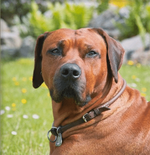G.I.B.
Gold Member
- Feb 23, 2007
- 7,187
- 8,537
- 🏆 Honorable Mentions:
- 1
- Detector(s) used
- CTX 3030 / GTI 2500 / Infinium LS / Tesoro Sand Shark / 1 Garrett Pro-pointer / 1 Carrot / Vibra Probe 580 (out on loan) / Lesche M85 / Mark1 MOD1 EyeBall
- Primary Interest:
- Other
My sis-in-law lives in N.D. where the temps remain pretty cold for most of the winter.
They have a metal barn they call the Morton. Very little insulation and a dirt floor. The sleds, tractors, 4 wheelers and such live in there, along with the deer cleaning station. As all great locations go, they have a fridge inside the Morton, and inside said fridge is beer.
During the winter it can stay around 15-20F (or lower) inside the building for several weeks at a time.
So, here is the set up:
Take a cooler, the best one you got, very well insulated. Put ice inside and close the cooler. After a week the inside will be the same temp as the outside. If it's 5 degrees for a couple of weeks, the inside of the cooler will eventually cold soak and be frozen. Tested and proven.
If it remains 5 degrees in the Morton building for a couple of weeks, the beer is not frozen. Tested and proven.
Why? Does the fridge have a reverse cycle to counteract the cold soak from the outside?
If not, why doesn't the beer inside freeze? The compressor will no longer need to cycle on when the internal temp reaches balance with the outside temp, or below, if no reverse cycle to warm it up to the regulated operating temp...
There has to be an answer!
They have a metal barn they call the Morton. Very little insulation and a dirt floor. The sleds, tractors, 4 wheelers and such live in there, along with the deer cleaning station. As all great locations go, they have a fridge inside the Morton, and inside said fridge is beer.
During the winter it can stay around 15-20F (or lower) inside the building for several weeks at a time.
So, here is the set up:
Take a cooler, the best one you got, very well insulated. Put ice inside and close the cooler. After a week the inside will be the same temp as the outside. If it's 5 degrees for a couple of weeks, the inside of the cooler will eventually cold soak and be frozen. Tested and proven.
If it remains 5 degrees in the Morton building for a couple of weeks, the beer is not frozen. Tested and proven.
Why? Does the fridge have a reverse cycle to counteract the cold soak from the outside?
If not, why doesn't the beer inside freeze? The compressor will no longer need to cycle on when the internal temp reaches balance with the outside temp, or below, if no reverse cycle to warm it up to the regulated operating temp...
There has to be an answer!






